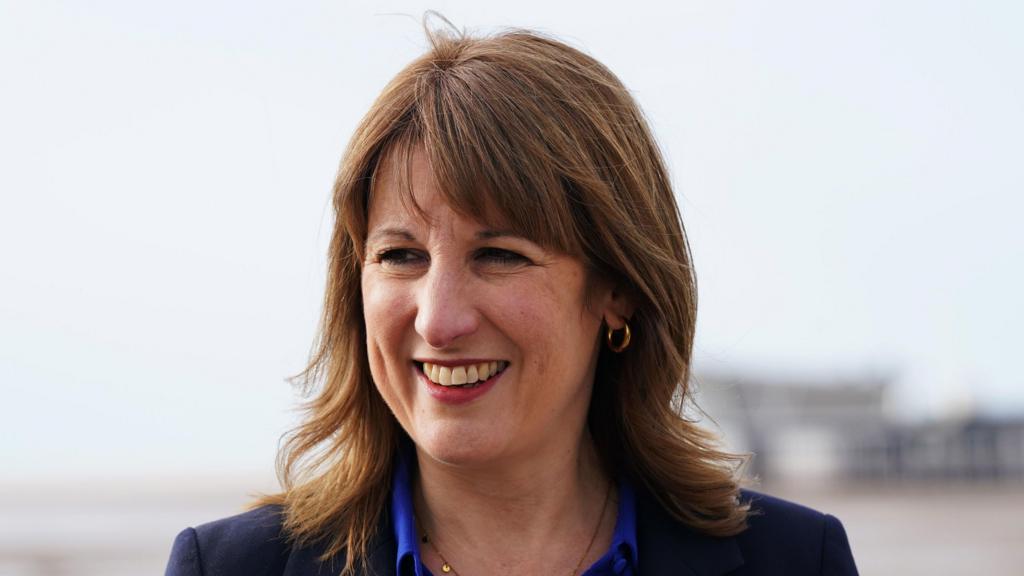Rachel Reeves is set to announce a new initiative guaranteeing paid work placements for young individuals who have been out of employment or education for a minimum of 18 months.
In her address to Labour’s annual conference in Liverpool, the shadow chancellor is expected to pledge “nothing less than the abolition of long-term youth unemployment.”
She is also anticipated to advocate for a society built on “contribution,” where “hard work is matched by fair reward.”
The announcement comes ahead of the November Budget, with Reeves facing pressure to balance public finances while simultaneously stimulating economic growth.
This scheme expands upon a “youth guarantee,” unveiled last November, which promised every 18 to 21-year-old in England access to apprenticeships, training, educational opportunities, or assistance in securing employment.
Under the proposed initiative, all young individuals who have been receiving Universal Credit for 18 months without “earning or learning” will be offered a guaranteed paid work placement.
Those who decline the offer without a valid reason may face sanctions, such as the reduction or loss of benefits.
The objective of these placements is to equip individuals with the necessary skills to transition into full-time employment.
According to recent data, approximately one in eight 16-24-year-olds are currently not in education, employment, or training, totaling around 948,000 individuals.
These figures reached an 11-year high of 987,000 at the close of last year.
The new scheme will build upon existing employment support and work placement programs administered by the Department for Work and Pensions.
It will involve collaboration with private companies, with the government anticipating that businesses will contribute to the wages for job placements.
While the government has not yet disclosed the specific cost of the scheme, it will be funded from existing budgets outlined in the spending review earlier this year.
Comprehensive details will be provided in the November Budget, when the shadow chancellor presents the government’s tax and spending plans.
The Federation of Small Businesses has welcomed the announcement as “hugely important.”
Tina McKenzie, the group’s policy chair, stated, “Reprioritizing spending from employment programs that are not effective to this type of scheme is precisely the way to achieve much-needed value for taxpayer money.”
She added, “Ensuring the details are right is crucial, including providing a backstop offer for those over 25, particularly those with health challenges; ensuring that young people out of work for health reasons are not excluded due to misguided double funding rules; and enabling small businesses to play a full role in the delivery of the scheme.”
However, questions remain regarding the capacity of businesses facing pressures such as increases in National Insurance Contributions and the National Minimum Wage to accommodate a significant number of new workers.
The number of job vacancies in the UK has been declining, reaching its lowest level since the pandemic earlier this year.
In her speech, the shadow chancellor is expected to say: “I will never be satisfied while too many people’s potential is wasted, frozen out of employment, education, or training. There’s no defending it.
“It’s bad for business, bad for taxpayers, bad for our economy, and it scars people’s prospects throughout their lives.”
She will add: “Just as the last Labour government, with its new deal for young people, abolished long-term youth unemployment I can commit this government to nothing less than the abolition of long-term youth unemployment.”
Reeves will also outline her vision for a “Britain based on opportunity,” where “ordinary kids can flourish, unhindered by their background.”
“I believe in a Britain founded on contribution – where we do our duty for each other, and where hard work is matched by fair reward,” she is expected to say.
This announcement follows the publication of a report last week by the influential think tank Labour Together, which argued that the government should prioritize the concept of “contribution” – the idea that individuals who contribute to the system should see tangible benefits – at the heart of its agenda.
In her speech, the shadow chancellor will also pledge to fund a library in every primary school in England.
According to figures from the National Literacy Trust, approximately one in seven state primary schools in England – roughly 1,700 – do not have a library, with this figure rising to one in four for disadvantaged areas.
Sign up for our Politics Essential newsletter to keep up with the inner workings of Westminster and beyond.
Mary Lou McDonald was speaking at the Labour party conference in Liverpool.
The mayor of Greater Manchester said those calling for loyalty were “underestimating the peril the party is in”.
Maurice Glasman, founder of Blue Labour, calls for more “economic radicalism” at a conference event.
Labour slams their political opponents while admitting a “hell of a fight” in Senedd elections.
BBC’s Laura Kuenssberg quizzed the prime minister on his government’s tax plans ahead of Chancellor Rachel Reeves’ Budget in November.

